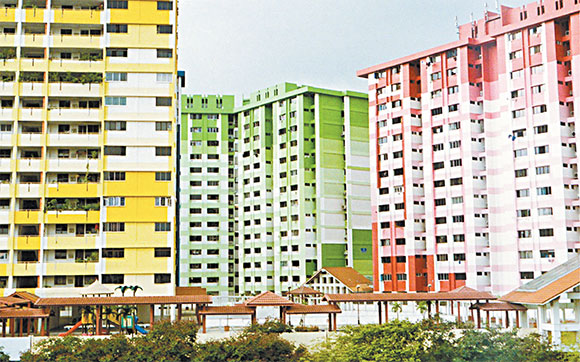Singapore’s Brilliant Housing Plan
Homeownership in Hawaii continues to stagnate at less than 60 percent. Affordability eludes us and contributes to our growing homelessness.
We have good reason to distrust government-run housing here, but that leaves our citizens struggling.
I’m just back from Singapore, where government-subsidized housing is not a laughable term, and 94 percent of its 5.4 million citizens are homeowners.
Low-income people buy their small-but-adequate units in well-built public-housing projects that are attractive and always include schools, supermarkets and access to public transit. How?
Singapore put public housing into the hands of a Housing and Development Board (HDB). And since 1964 the scheme has been not to rent flats, but to empower ownership in them with 99-year leases and a novel downpayment program.
Singapore has a national retirement-fund program to which workers and employers contribute. Citizens with low incomes can tap their portion of that fund for a public-housing downpayment. Then they basically rent-to-own. Your rent is your mortgage payment to the government.
The late prime minister Lee Kuan Yew said, “I wanted a homeowning society. I had seen the contrast between the blocks of low-cost rental apartments, badly misused and poorly maintained, and those of house-proud owners, and was convinced that if every family owned its home, the country would be more stable.”
The HDB sells public housing units at below market price to those with incomes less than $10,000 a year or qualifying for special assistance. You cannot resell your unit for at least five years. The elderly can sell back to the HDB part of their lease period, in return for a lifetime annuity so they can keep up payments.
Singapore tried involving private developers for a time, but that quickly inflated unit prices beyond affordability. So government puts the construction money up front from reserves and gets the land-and-build costs back over time from the rent-to-own tenants.
The government is empowered to condemn and buy any land it needs for public housing at market price.
The projects are colorful and environmentally green.
Most of Singapore’s lower-wage earners now rent to own.
The trade-offs are: You can’t quickly move “up-town” and can’t sell into a rising-price market like people in private housing.
But I’d take that over people in tents on our sidewalks.
It could have worked here and much better than with our bad Kuhio Park Terrace and Mayor Wright projects, had our long line of Democrat lawmakers and governors lived up to their claims of being “for the people.”
banyantreehouse@gmail.com




